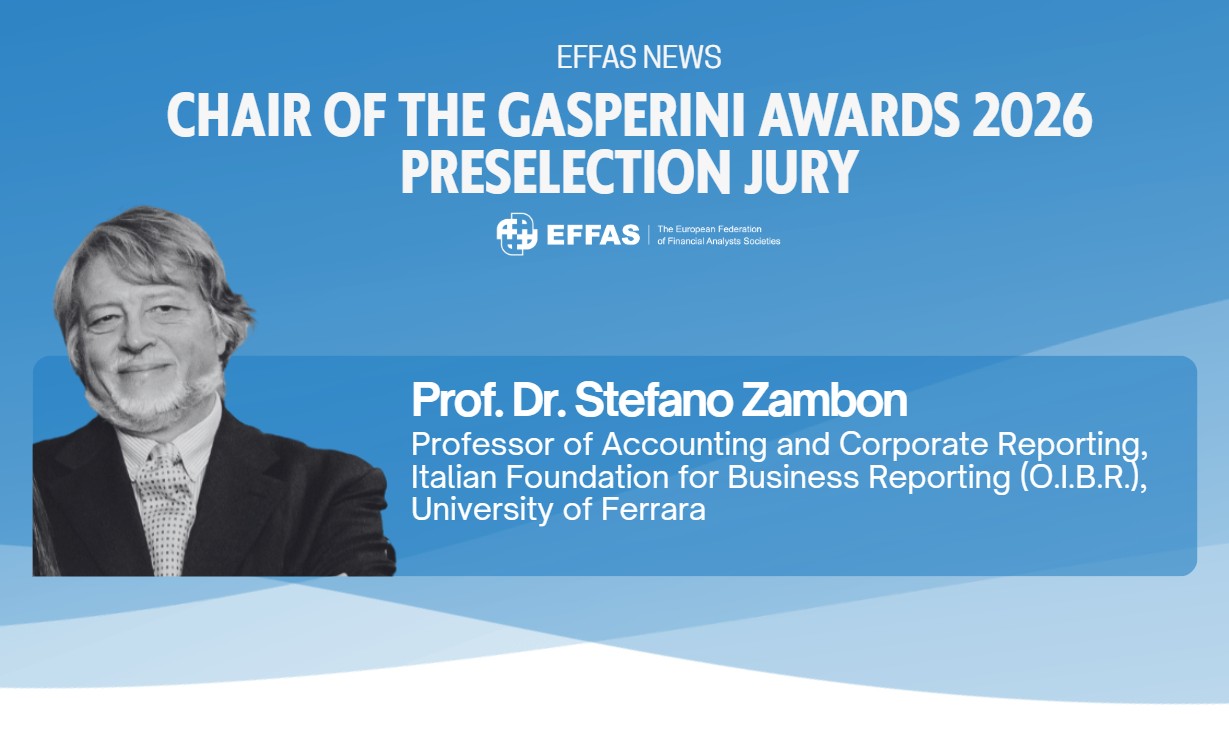Frankfurt, 19 February 2021
ESMA will hold on Tuesday 25 February 2021 a webinar to present the working paper and its findings, followed by a Q&A session.
The European Securities and Markets Authority (ESMA) has published a working paper on MiFID II research unbundling of the view that despite the concerns that have been raised that the MiFID II research unbundling provisions could have had detrimental effects, particularly on SMEs, on the availability and quality of research on EU companies, as well as on company financing conditions, they do not find material evidence of these effects. EFFAS expressed its users concerns in their comment letter to ESMA on the consequences of MiFID II and still holds these concerns.
Given the relevance of the topic, and our continuing concerns we kindly request that people specialised in MiFID II unbundling do not miss the chance to register for the webinar.
For your information ESMA writes in the paper:
Concerns have been raised that the MiFID II research unbundling provisions could have had detrimental effects, particularly on SMEs, on the availability and quality of research on EU companies, as well as on company financing conditions. We do not find material evidence of these effects: following the introduction of the MiFID II research unbundling provisions the quantity of research per SME has not declined relative to larger firms;
the probability of an SME completely losing coverage has not increased relative to a larger firm; the quality of SME research has not worsened relative to larger firms; and SME liquidity conditions have worsened, relative to larger firms, in terms of tightness (measured by bid-ask spreads), but not in terms of depth (measured by the Amihud illiquidity ratio and the turnover ratio). However, in absolute terms, SMEs continue to be characterised by lower amount of analyst research, higher probability of losing coverage, worse quality of research and limited market liquidity. This situation appears to have been neither improved nor worsened by the MiFID II research unbundling provisions.





